Cancer politics
Keywords:
politics, public policy, government programs, neoplasms, prevention, controlAbstract
The cancer epidemic is a political issue of global proportions. The phenomenal rise during the last decades in cancer statistics marked the beginning of our understanding that cancer is a political problem, as well as medical, social, psychological, and economic. This review looks at the history of cancer control policy and at the broader concept of cause, and some of the professional and poltical obstacles to effective control. It also reasserts the importance of cancer understanding in terms of the knowledge and presents considerations for a modern cancer control policy.
Author Biography
Diana Rivera, Instituto Nacional de Cancerología
Instituto Nacional de Cancerología E.S.E., Grupo Políticas, Legislación y Movilización Social, Bogotá, D.C., Colombia.
References
Sigerist HE. Medicine and human welfare. New Haven: Yale University Press; 1941. p. 57.
Fee E, Brown T, editores. Making medical history. The life and times of Henry E. Sigerist. Baltimore: John Hopkins University Press; 1997. p.197.
Sigerist HE. Civilization and disease. Chicago: Cornell University; 1943. p. 246.
World Health Organization. World health report 2002. Protecting the people. Geneva: WHO; 2002. p. 1-6.
Varricchio C. A Cancer Sourcebook for Nurses. 7ed. ed. Atlanta: American Cancer Society; 1997. p. 13.
Red Temática de Investigación Cooperativa de Centros de Cáncer de España. Plan estratégico conjunto. Madrid: RETICS; 2003.
Heineman RA. Political science. An introduction. New York: McGraw Hill; 1996, p.13.
Bobbio N. Estado, gobierno y sociedad. Por una teoría general de la política. México: Fondo de la Cultura Económica; 1999. p. 8-10.
Valles JM. Ciencia política: una introducción. Barcelona: Editorial Ariel, S.A.; 2000. p. 21-23.
Andersen J. Public policymaking. 5ed. Boston: Houghton Mifflin; 2003. p. 2,377.
Dunn WN. Public policy analysis: an introduction. 3ed. Englewood Cliffs, N.J.: Pearson Prentice Hall; 2003. p. 34.
Dye TR. Understanding public policy. 7ed. Englewood Cliffs, N.J.: Pearson Prentice Hall, 1992. p.7.
Hey wood A. Politics. 2ed. New York: Palgrave Macmillan; 2002. p. 399-418.
American Cancer Society. Advocacy and Public Policy, [en línea] S.F. [fecha de acceso 20 de mayo de 2005]. URL disponible en: http://www.cáncer.org/docroot/AA/content/AA_2_3_Advocacy_ and_Public_Policy.asp?sitearea=A A.
Rushefski ME. Making cancer policy. New York: State University of New York Press; 1986. p. 5, 61-64.
Levin MA, Landy MK Shapiro, M. Seeking the center: politics and policymaking at the new century. Washington, D.C.: Georgetown University Press; 2001. p. 5.
Tezanos JF. La sociedad dividida, estructuras de clases y desigualdades en las sociedades tecnológicas. Madrid: Editorial Biblioteca Nueva; 2001.
Proctor RN. Cancer Wars. How politics shapes what we know and don't know about cancer. New York: Harper Collins Publishers; 1995. p. 270.
Slovic P. El afecto, el riesgo, y la decision que hace. En: Meeting Basic and applied decision making in cancer control, february 19-24. Washington, D.C.
McMichael AJ, Beaglehole R. The changing global context of public health. Lancet 2000:356:495-99.
https://doi.org/10.1016/S0140-6736(00)02564-2
Pang T, Sadana R, Hanney S, Bhutta Z, Hyder A, Simon J. Knowledge for Better Health a conceptual framework and foundation for health research systems. Bull World Health Organ; 2003; 8:815-820.
Álvarez-Dardet C, Colomer C. Promoción de la salud y cambio social. Barcelona: Masson; 2001. p. 36-40.
Galbraith JK. The Good Society: the Humane Agenda. Boston: Mariner Books; 1997. p. 98.
How to Cite
Downloads
Downloads
Published
Issue
Section
License
Todos los derechos reservados.




